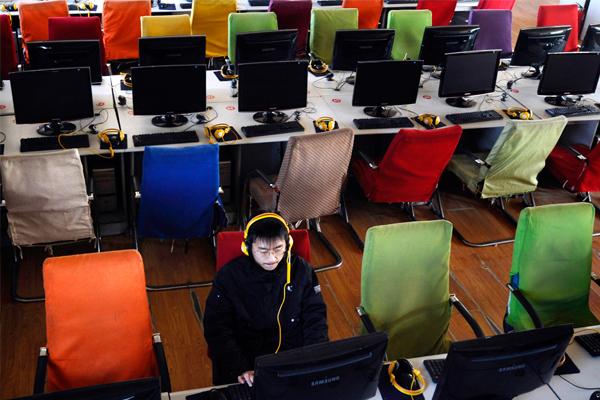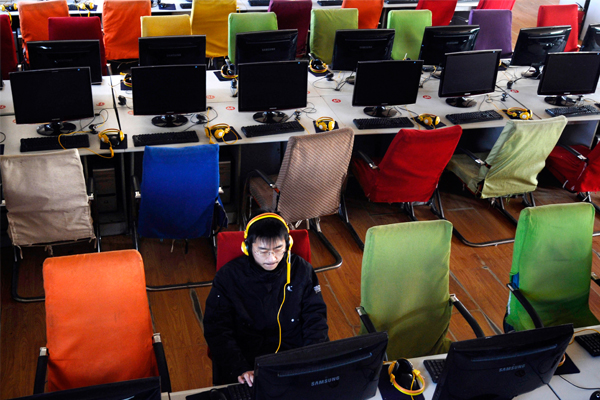
Skip to
China’s craze for live streaming is booming and that is fuelling a relatively new industry in China.
The overall size of the business almost doubled last year in the country as hundreds of platforms emerged. Existing providers include some big names like Wanda and Tencent, while more newcomers are also squeezing in to take a piece of this snowballing market within the technology, media and telecommunications (TMT) industry.
“It is a digital era with technology upgrading every day. 4G internet access and a wide range of mobile apps are extensively used among Chinese. This fosters the environment for the popularity of live streaming,” says Zhou Fang, a partner with JunHe. “We will see it continue to grow and more formats emerging.”
According to the China Internet Network Information Center, the number of live-streaming users in China reached 325 million by the end of June last year, which is half of the total population of Chinese Internet users. At the same time, according to a report released by China International Capital Corporation, the streaming industry in China may have been worth between 10-15 billion yuan in 2015, including such areas as hosting and production and support services.
Douyu, one of the top live-streaming service, is in talks to raise another RMB1 billion ($145 million), which it plans to use to grab a larger piece of this fiercely competitive market and gain ground against platforms like Panda TV, founded by Wanda’s princeling Wang Sicong and Nasdaq-listed YY Inc. Last year, Douyu successfully finished two rounds of financing, both of which involved the country’s internet giant Tencent.
Live streaming is rapidly becoming the hottest space in the country’s crowded internet and media markets, that include micro blogging giant Sina. Video streaming sites like Youku, Tudou, LeTV and iQiyi are all rushing in.
Figures released by internet research agency iResearch show that, on average, a live-streaming platform was established every three days last year on average.
Back to topLEGAL CONCERNS
But the growth of the industry is not happing without some criticism. The biggest concerns have to do with inappropriate content and the high risk of intellectual property infringement, concerns that only grow as the market is flooded with apps.
“The live-streaming economy is a new pattern derived from the ‘new economy’ during the development of mobile technology,” Wu Yiming, a professor at Nanjing Normal University said during a recent seminar about regulations on live streaming. “Overly pursuing profits via allowing anchors to broadcast inappropriate content might turn this sector into a flash bubble.”
While inappropriate content is probably the most frequently mentioned issue in regards to this growing sector, legal professionals are also concerned about a number of other challenges.
One example is live-streaming computer games, one category with the most viewers on most live streaming platforms. Sun Mingfei, a partner with King & Wood Mallesons, says that some hotly discussed legal issues include who owns the rights and interests of the live-streaming content, what rights the game players have and what rights do the live-streaming broadcasters have, and issues concerning the monopoly of live-streaming platforms and virtual currency issues.
“In the field of computer game live-streaming, the main challenge for the game players, broadcasters and the game operators is that the rights and interests cannot be clearly defined based on the existing law, and the ownership thereof remains unclear and in chaos,” says Sun.
The chaotic situation also applies to other live-streaming sectors, such as talent shows, reality shows. For all of them, supervision is particularly difficult due to the nature of the industry.
“It is a whole different thing from watching or downloading edited videos online where the platform or website could filter out stuff,” says Zhou with JunHe. “There are a lot of uncertainties during the live broadcasting.”
To cope with the issues, authorities have issued several regulations in regards to live streaming over the past couple of months.
In July, the Ministry of Culture promulgated the “Circular on Strengthening the Management of Internet Performances”. Then, in September, the State Administration of Press, Publication, Radio, Film, and Television announced the “Notice on the Issues Related to the Strengthening of the Administration of Online Audio and Visual Live Broadcasting Services”, which emphasized that live broadcasts should possess “licenses” while individuals and organizations without one should not engage in live streaming. Last November, the Cyberspace Administration of China issued the Administrative Provisions on Internet Live-streaming Services.
The last one, which took effect last December, is now seen as the basic framework for the industry. It requires content providers to obtain qualifications and set rules on monitoring user data. Platforms are required to collaborate with regulators to provide information about users who stream content that the government considers threatening to national security or social order. Service providers should classify online live streams based on their content and number of users, and manage them accordingly, the regulation says.
It also asks service providers to blacklist users who break the rules and prohibit them from registering again.
In addition, service providers should be well-staffed and have the technical ability to stop live streams immediately, according to the regulation.
Back to topREGULATORS CATCH UP
Zhou says that regulators have made efforts to catch up with the whirlwind growth of the industry.
“Currently regulators are taking a combo approach – content regulation plus platform supervision,” he notes. “ Rules about content are mainly collected from original legal clauses regarding online information and video or audio programs; however, we see a hard line taken on platforms side. Since there is no pre-check procedure of the content due to live streaming’s nature, once there is content crossing the line on platform A, this platform would face sever penalty. The worst scenario could be shutting down.”
However, there are still a lot of uncertainties and grey areas in live streaming as in other fields of technology, media and telecommunication. For example, how is content defined as “crossing the line.”
“The regulation published by the CAC is an administrative document which regulates the entire industry and focus on government supervision. It is hard to operate and does not offer a thorough solution to the complicated legal issues in the live-streaming field,” said Sun with King & Wood.
Wang Shouliang, a partner with Beijing Anbo Law Firm echoed the view and pointed out that, “current regulations have not established clear codes of conduct for live streaming” and “also lacks operable and efficient punishment mechanisms.”
The lawyer added that currently reporting channels are limited, illegal practices tend to be focused on a few frequently mentioned issues, both of which lead to the inefficiency of curbing illegal practices in live streaming.
Looking forward, lawyers are expecting more active gestures to be taken by related authorities for a healthy and sustainable development of the live streaming business.
Wang with Anbo believes that the industry will see much tighter supervision and stricter standards in general.
“Related authorities will issue more rigorous rules to improve the regulatory environment and better regulate the industry,” he said. “Raising the threshold of operating live streaming platforms and being an anchor of live streaming and punishing those who violate the rules more severely is the trend.”
Zhou with JunHe highlights the importance of making current regulations more comprehensive and much clearer.
“We already have a lot many laws, regulations, rules guidance related; however what leads to the inefficiency is that many definitions are not clear enough and we do not know to which extent the clause should be implemented,” says Zhou. “Innovation is the core thing with the TMT industry and makes it different from other industries. That is why we do not want to see it be hedged in with rules and regulations, as tighter interpretation and implementation of those may restrain innovation.”
Back to top


